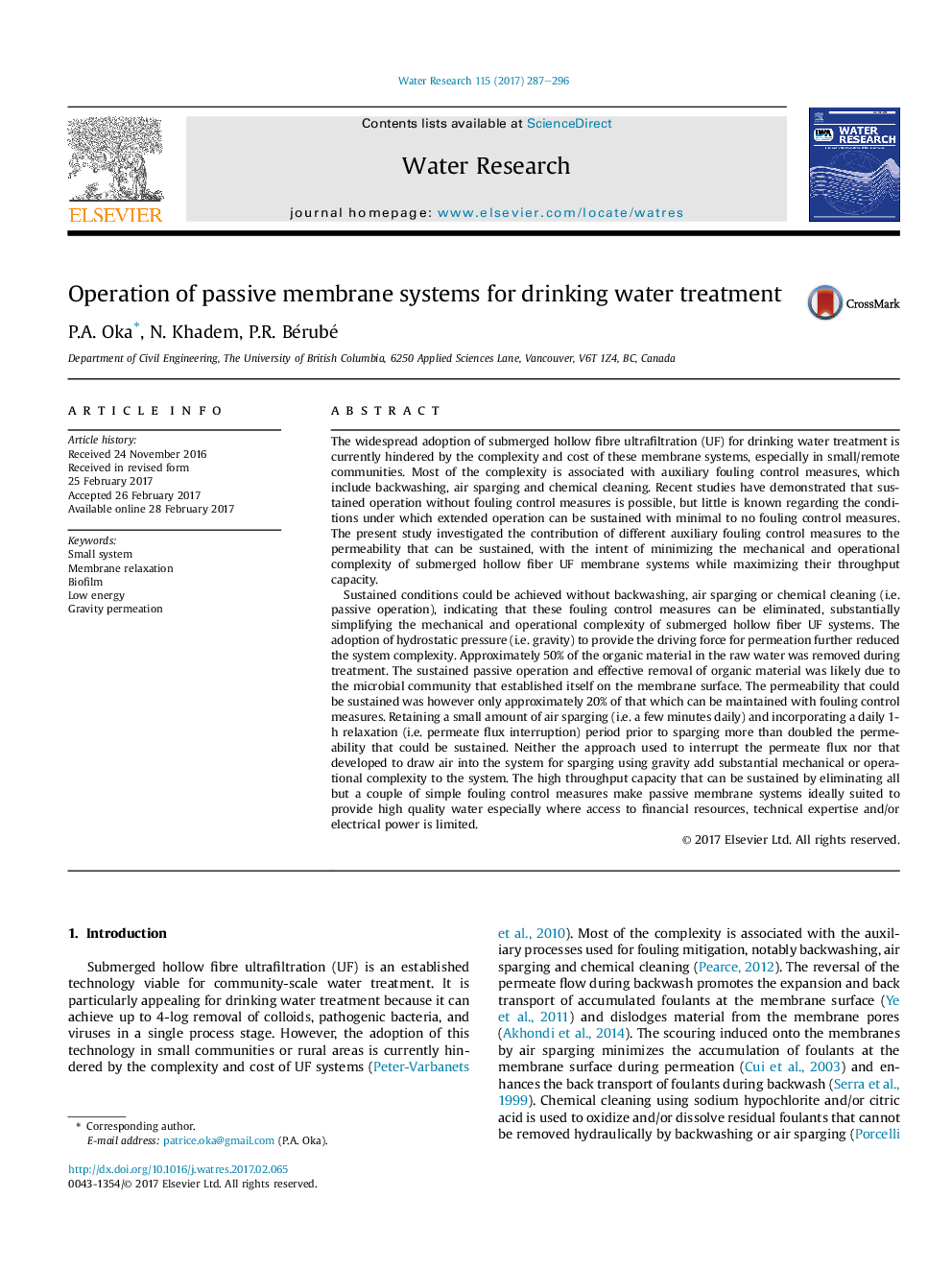| Article ID | Journal | Published Year | Pages | File Type |
|---|---|---|---|---|
| 5759086 | Water Research | 2017 | 10 Pages |
Abstract
Sustained conditions could be achieved without backwashing, air sparging or chemical cleaning (i.e. passive operation), indicating that these fouling control measures can be eliminated, substantially simplifying the mechanical and operational complexity of submerged hollow fiber UF systems. The adoption of hydrostatic pressure (i.e. gravity) to provide the driving force for permeation further reduced the system complexity. Approximately 50% of the organic material in the raw water was removed during treatment. The sustained passive operation and effective removal of organic material was likely due to the microbial community that established itself on the membrane surface. The permeability that could be sustained was however only approximately 20% of that which can be maintained with fouling control measures. Retaining a small amount of air sparging (i.e. a few minutes daily) and incorporating a daily 1-h relaxation (i.e. permeate flux interruption) period prior to sparging more than doubled the permeability that could be sustained. Neither the approach used to interrupt the permeate flux nor that developed to draw air into the system for sparging using gravity add substantial mechanical or operational complexity to the system. The high throughput capacity that can be sustained by eliminating all but a couple of simple fouling control measures make passive membrane systems ideally suited to provide high quality water especially where access to financial resources, technical expertise and/or electrical power is limited.
Keywords
Related Topics
Physical Sciences and Engineering
Earth and Planetary Sciences
Earth-Surface Processes
Authors
P.A. Oka, N. Khadem, P.R. Bérubé,
